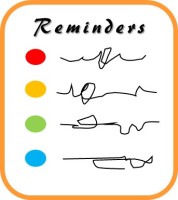Life - the learning curve
Posted on
Life is one HUGE learning curve. And what better curve than the beautiful sound wave? Those beautiful compressed and refracted undulations are glorious. Waves, I salute you! I am always struck, when I watch and listen back to the waves, by how much we can learn from them - not only about performance, style, and timing but also the subject matter itself. Did you know that Ibuprofen was first developed in Nottingham? Did you know that you are the master of your own confidence? Did you know that cats have different nutritional needs (and are also very cute)? Well, now I do and so do you!
| Learning never stops and is a continuous journey where my aim is always to polish my skills and work on getting new ones. Life is an art form. Three little letters for you: CPD! No, not an articulation exercise but CONTINUOUS PROFESSIONAL DEVELOPMENT. There is always so much to fine tune, not just in the VO world (breathing, articulating, reading and understanding) but in the business world as well. From technical audio skills to negotiation analysis to marketing your brand – these are just some of the areas that voiceover artists need to focus on. |  |
To CPD or not to CPD? That is the question? No! How many resources will you set aside and commit to ongoing learning? That, I feel, is the better question.
 |
Why is it just so important? The Round Island maestro, Guy Michaels presents his case presents his case: “Are you the tortoise or the hare? CPD is constant, hence my preference for Continuous rather than Continuing. If you stop, then those around you who are plodding on carefully as the tortoise does, will be overtaking you. If you have not made time to consider your professional development in the long term, you are standing still.” Well there you go! |
| And as I mentioned before, CPD is not just about the VO side: change is happening and it is crucial to keep up with changes. Gary Terzza, the VO masterclass taskmaster makes his point clearly: “Social media has changed how we promote our VO services. Because this is in a constant state of flux, CPD is essential to keep up to date with new platforms and new ways of selling.” |
So we’ve established that learning is a good thing and therefore should be incorporated into your annual voice over strategy. How should you go about this? Some hard thinking is needed to know which direction you want to go in, what your goals are and how to best get them. Then, as Gary says, “…look at [the] way of achieving [your goals] through development such as advanced voice over courses.” Maybe you realise your potential clients are all businesses on linkedIn but you aren’t sure of how to use that platform, so a course might be useful. Or perhaps you want to work on audiobooks but need to build up your breathing stamina, so an especially-designed course might work for you.
| A word of caution from Guy: “Be careful of 'goal setting'. Many of us set ourselves goals for the forthcoming year, lose track, beat ourselves up over not reaching them”. Yes, good call Guy! I’ve been working on a 2016 goal chart, about what I want to achieve in the coming year. Yes, in some I have reached for the stars (anything 007-related please) but I have set achievable goals as well. Then every day, I work on achieving this goal. Sometimes a few reminders can help: “Schedule regular review dates in your diary. Set time aside to see whether the steps you are taking are helping you move towards you goals or not.” Always go back and reassess: goals can change as well as you learn more about yourself, so don’t be afraid to update your objectives. |  |
Right, so now we have a set of goals in front of us and we know what we want to learn about, but how much should you be spending on CPD? Here’s a complex calculation from Gary: “You should set the cost within the context of future profit projections. Could £1,000 spent on CPD yield a further £2,000 in earnings? If so, any professional development outlay would pay for itself over and over again.” So, excel sheets at the ready….calculate! (I imagine that last word being shouted in style of Sue in the GBBO marquee.) Guy succinctly explains the expenditure thus: “As long as the CPD is focussed, it has identifiable benefits and enables you to take a step back from the day-to-day of 'work' then I would aim for a 10% of gross spend in the first 5 years as a VO.” And remember that we also have to spend time on the CPD, not just dosh. Will you commit to it and spend the time for the actual course or learning programme and also study for it beforehand (and afterwards)?
CPD is for everyone but if you are a voice over artist then why should you invest in this trio of letters? All businesses need to change and keep up with new ideas and innovations. Adapting and changing is key and for voice overs, wearing many hats means having to be knowledgeable about all areas. You may even find you build up more skills! Gary suggests that “Voice over artists should look to push themselves into different, unexpected areas. Joining a choir or improv group will enhance vocal dexterity and stretch performance talents.” Great ideas!
Every year, I line up some CPD – some are pure business or for VO and others are just for fun. One year, I decided to add hip hop to my dancing skills and even ended up body popping at a huge Nike event in a giant warehouse! Another year, I did some serious audio archiving – ahhh the feel of actual tapes! This year I have been consolidating my breathing techniques(yes more than just in and out), talking so that I sound like more than 100+ people and finally perfecting my home studio.
Next year, I have quite a few CPD items on my list. A really fun one I am looking forward to is a gaming VO course with THE Dave Fennoy, yep in person, yep here in the UK, yes, I know! A lot of fab CPD courses are offered by the fantastic VoiceOver Network, supporting VOs to reach their goals. Others are offered by agents, contacts or even clients! I’ll update my objectives during the year, but all along the way, I know that it will be great for me, for my VO business and for my Voice Art!